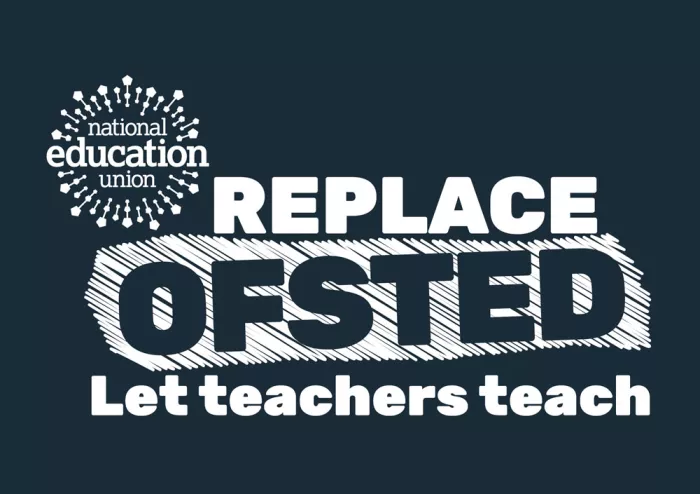The Berkshire coroner’s comments1 about Ofsted bullying of Reading primary school head Ruth Perry—that she took her own life after her school was downgraded from ‘good’ to ‘unsatisfactory’—shone a light on how the inspection regime bullies both heads and other teachers.
In the last year, there have been 470 formal complaints about bullying inspectors, but that means the inspectors were only doing what they were employed to do. It takes a lot to make a school complain because the result can be new inspections and even more bullying. Bullying is built into the system.
After the coroner’s findings, the statement from Ofsted chief Amanda Spielman was another dire example of bureaucratic apology culture: ‘we sincerely apologise and lessons must be learned’. The Ofsted head said that the organisation would pause inspections while a programme of training took place. But in a pre-hearing with the coroner earlier this year, the Ofsted representative flatly denied any responsibility.

Ofsted (the Office for Standards in Education) was set up in 1992 based on false ideas about education and teachers, ideas propounded by its founding chief, Chris Woodhead, in his frequent Sunday Times and Telegraph columns. Woodhead pleased his right-wing newspaper audience by regurgitating their own prejudices—that education was riven with left-wing teachers going on strike and crazy ideas about teaching methods. The solution, said Woodhead, was a national curriculum focusing on basic skills and, above all, a tight inspection regime to root out failing schools and failing teachers. John Major’s Tory government set up Ofsted and appointed Woodhead as its first leader. The Ofsted reign of terror had begun.
Ofsted was bequeathed to the 1997–2010 Labour government, whose education ministers, most notably David Blunkett and Charles Clarke, gave the Ofsted system a further twist of the knife.
Ofsted has been implicated in the deaths of 10 teachers in the last 25 years. But this is just the tip of the iceberg of massive demoralisation, chronic stress, and departure from the profession. Half of all teachers leave teaching within five years of qualifying. And despite the fact that all public employees fell victim to George Osborne’s austerity measures after 2010, this is not because of low pay. The average starting salary is £31,000, and this goes up with experience and added responsibilities.
These figures would seem like a luxury to a lot of zero-hours contract workers, sales assistants, low-level civil servants, and many others pushed down to minimum wage levels. Salary is not the fundamental issue, even if young teachers’ pay is typically insufficient to fund buying a house or avoiding debt. Teachers leave primarily because of the workload and the inspection regime. The intense levels of preparation and marking typically wear down even teachers who pass inspections.
The Ofsted psychological warfare machine works like this: A bad inspection report threatens the jobs and careers of heads and senior managers. This pushes them into ‘self-ofstedisation’—relentless internal rounds of class observation and insistence on high exam grades and detailed tracking of each student. Education is the victim of methods imported from American human resources departments in which everything can be measured and graded. But this cannot be applied to education. The complexity of student development and teacher-student interactions cannot be reduced to piles of data and ever-more detailed statistics.
In the early 2000s, Prime Minister Tony Blair became interested in education and adopted wholesale the myth that Britain’s economic and social difficulties were a function of its poor education results and the low level of university admissions (as compared with other advanced economies like Japan and the United States). Blair’s new-found enthusiasm for education was crystallised in the push to get 50% of all students the qualifications to go to university. With former MP and now broadcaster Ed Balls appointed as Children’s Minister, a dizzying series of projects under the banner of ‘Every Child Matters’ was announced. In other words, the exam results of every child matter. Changes under New Labour institutionalised different teaching norms, especially group work, which may work in the Cotswolds, but in less rarefied schools and colleges can degenerate into students chatting on mobile phones.
The vicious and decisive move by New Labour was the redefinition of level 3 of Ofsted’s four-grade system from ‘satisfactory’ to ‘needs improvement’ (in other words, ‘unsatisfactory’). This widened the number of schools and colleges getting further inspection in the short term, provoking a system of ‘self-Ofstedisation’. Many schools and colleges intensified their ‘Inset’ (in-service training) sessions, and a corps of former teachers and Ofsted instructors have made a fortune addressing these sessions or being employed as ‘consultants’. In some colleges, during frequently chaotic Inset sessions, course leaders have been urged to ‘get the weak teachers off the bus’, or ‘tell lazy teachers to get off their backsides and do something’.
In 2005, a surprisingly high number of educational institutions were coincidentally given a grade 3, ensuring they stayed within Ofsted’s clutches. Grade 1 (outstanding) and grade 2 (‘good’) institutions could relax in the short term. Getting a grade 4 (unsatisfactory) signals disaster for the governors and senior managers, who will likely be sacked and many teachers dispensed with. Those who stayed would likely find their school turned into an academy, a privately run institution outside national agreements and thus able to set its own pay rates and service conditions.
What Ofsted does not take into account, however, is that educational outcomes generally depend on socio-economic backgrounds. Nearly all public (i.e., private) schools do well in inspections and exam results because their students from middle- and upper-class backgrounds have high levels of literacy and cultural capital in general. They can meet the criteria for entry to top universities and medical schools much more easily than even the best students from poor working-class communities. Also, most public schools will have a low student-to-teacher ratio, enabling much more detailed individual support.
Teachers resisting ‘self-Ofstedisation’ face an uphill battle. In 2005, a bad Ofsted report in one London college provoked 12 years of turmoil, including open warfare between different camps among the governors, the departure of two principals, repeated one-day strikes, and eventually the departure of most of the 100+ teachers as well. But teachers became weary of the fight, including the union militants, and many went to another college or retired. Eventually, in such situations, regional and national support starts to wane as union officials conclude that no more money for strike pay can be ‘wasted’ on a losing fight.
In reality, it is extremely difficult to fight Ofsted school-by-school. The major education unions, the NEU and NAS-UWT, need to move beyond conference resolutions towards active national campaigns of resistance. Like anything else, no improvements can be expected from a Starmer Labour government. But in the long term, this is a central issue for the health and well-being of teachers.

There are, of course, some teachers who have difficulty in the classroom. A system of peer observation and support needs to be put in place, one that supports teachers rather than victimising them.
The Ofsted system of psychological warfare against schools and colleges needs to be dumped and academies with it.
Footnotes
- https://www.bbc.co.uk/news/education-67639942 ↩︎
Art (53) Book Review (121) Books (114) Capitalism (65) China (79) Climate Emergency (97) Conservative Government (90) Conservative Party (45) COVID-19 (44) Economics (40) EcoSocialism (55) Elections (83) Europe (46) Fascism (56) Film (49) Film Review (68) France (69) Gaza (59) Imperialism (97) Israel (119) Italy (45) Keir Starmer (52) Labour Party (110) Long Read (42) Marxism (47) Palestine (164) pandemic (78) Protest (151) Russia (339) Solidarity (140) Statement (48) Trade Unionism (139) Ukraine (344) United States of America (132) War (367)

